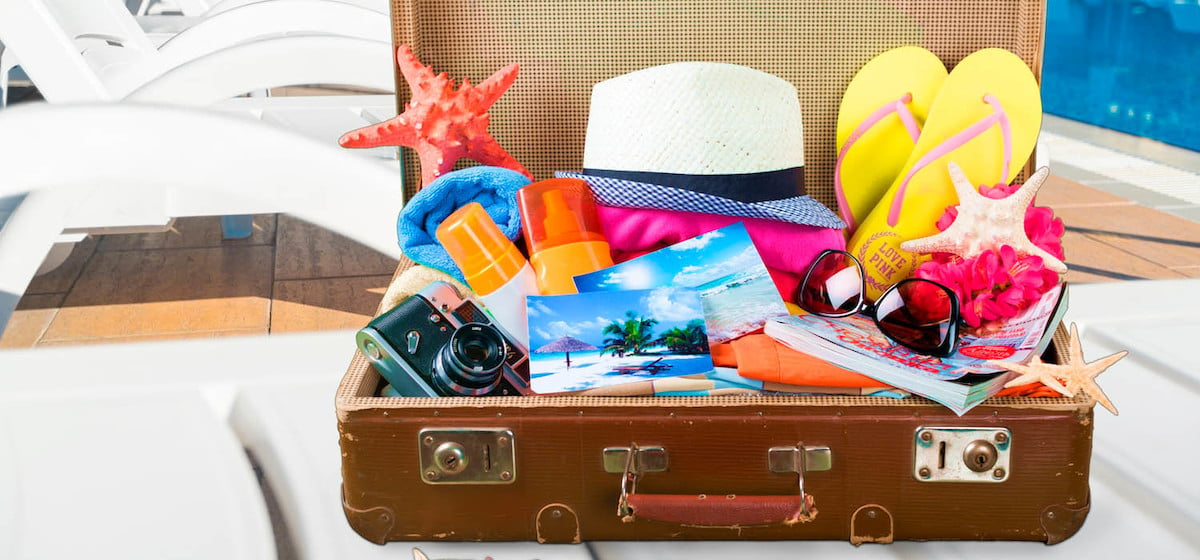Vacations for elderly individuals offer a unique blend of relaxation, exploration, and rejuvenation. Planning a trip that caters to the specific needs and preferences of older travelers requires careful consideration of several factors, from accessibility and health concerns to budget and social interaction. This guide delves into the key aspects of creating memorable and fulfilling vacations for seniors, ensuring a seamless and enjoyable experience.
We will explore diverse vacation types suitable for various activity levels, highlighting the benefits and drawbacks of each option. Furthermore, we’ll discuss essential accessibility features, health and safety considerations, budget-friendly choices, and the crucial role of social interaction in enriching the senior travel experience. By examining senior-friendly destinations and addressing common concerns, this guide aims to empower elderly individuals and their loved ones to plan unforgettable journeys.
Accessibility and Senior-Friendly Travel
Planning a vacation for elderly individuals requires careful consideration of accessibility and senior-friendly features to ensure a comfortable and enjoyable experience. This involves selecting destinations and accommodations that cater to the specific needs of older travelers, focusing on ease of movement, safety, and convenience. Failing to do so can significantly impact the overall enjoyment and potentially create unnecessary stress and discomfort.
Senior-friendly travel goes beyond simply choosing a relaxing destination. It encompasses a holistic approach to travel planning, considering every aspect from the ease of navigating airports to the accessibility of hotel rooms and local attractions. A successful trip hinges on thoughtful planning that anticipates and addresses potential challenges related to mobility, vision, and hearing.
Essential Features of Senior-Friendly Destinations and Accommodations
Senior-friendly destinations and accommodations prioritize ease of access and comfort for older travelers. This includes features designed to minimize physical strain and maximize independence. Key considerations include the availability of ramps and elevators, wide doorways and hallways, grab bars in bathrooms, and well-lit spaces to improve navigation and safety. Destinations should also offer a variety of activities suitable for different levels of mobility and energy, allowing seniors to participate at their own pace. For instance, a resort might offer gentle walking trails alongside more strenuous options, ensuring inclusivity for all guests.
Accessible Transportation Options for Elderly Travelers
Accessible transportation is crucial for elderly travelers to move around freely and safely. This involves readily available and convenient options such as wheelchair-accessible taxis, buses, and trains. Many airports now offer assistance services for elderly passengers, including wheelchair assistance and priority boarding. Destinations with well-developed public transportation systems that incorporate accessible features, such as low-floor buses and clearly marked routes, are particularly appealing. Consideration should also be given to the availability of accessible car rental services, potentially with hand controls or other adaptive equipment. The ease of navigating transportation directly impacts an elderly traveler’s ability to explore and enjoy their vacation.
Examples of Travel Agencies Specializing in Senior Travel and Their Services
Several travel agencies specialize in catering to the needs of senior travelers. These agencies often offer tailored itineraries that focus on accessibility, comfort, and age-appropriate activities. For example, some agencies might arrange for private transportation, book accommodations with accessible features, and curate excursions that are less physically demanding. They might also provide travel insurance packages that specifically address the needs of older travelers. While specific agency names and service details are constantly evolving, researching travel agencies specializing in senior travel will reveal numerous options with varying levels of service and pricing. The key is to look for agencies that emphasize accessibility and personalized service to meet individual needs.
Crucial Accessibility Features in Hotels or Resorts Catering to Seniors
A thoughtful selection of accessibility features significantly improves the comfort and independence of elderly travelers staying in hotels or resorts. The following are five crucial elements:
The importance of these features cannot be overstated. They directly impact the safety, comfort, and overall experience of senior travelers, contributing to a more enjoyable and stress-free vacation.
- Well-lit hallways and rooms: Adequate lighting minimizes the risk of falls and improves navigation, particularly for those with impaired vision.
- Grab bars in bathrooms: These provide essential support for stability and safety, especially in showers and near toilets.
- Ramps or elevators: These ensure easy access to all areas of the hotel, eliminating the need to navigate stairs.
- Wide doorways and hallways: This allows for easier movement with wheelchairs or walkers.
- Accessible room features: This includes features such as roll-in showers, adjustable height beds, and emergency call buttons.
Budget-Friendly Vacation Options for Seniors
Planning a relaxing and enjoyable vacation doesn’t have to break the bank, especially for seniors who may be on a fixed income. Many affordable options exist that prioritize comfort and accessibility without compromising on experience. This section explores several budget-friendly vacation ideas, strategies for saving money, and a comparison of associated costs.
Budget-Friendly Vacation Ideas for Seniors
Several vacation options cater specifically to seniors’ needs and budgets. These options consider factors such as ease of travel, comfortable accommodations, and engaging yet manageable activities.
| Location | Accommodation | Transportation | Estimated Cost (per person, 7 days) |
|---|---|---|---|
| National Parks (e.g., Great Smoky Mountains) | Camping (with accessible facilities) or budget-friendly cabins/lodges | Personal vehicle (if possible) or affordable shuttle services within the park. | $500 – $1000 |
| Smaller Cities with Rich History (e.g., Savannah, Georgia) | Airbnb or budget-friendly hotels outside the main tourist areas. | Walking, local buses, or ride-sharing services. | $700 – $1500 |
| Coastal Towns (e.g., Outer Banks, North Carolina) | Oceanfront rentals (shared with others to reduce costs) or affordable motels. | Personal vehicle (if possible) or local taxi services. | $600 – $1200 |
| Cruise to the Caribbean ( shorter duration) | Inside cabin on a smaller cruise line. | Cruise ship transportation included. | $1000 – $2000 (excluding excursions) |
| All-Inclusive Resorts (off-season) | All-inclusive resorts in less popular destinations offer lower rates during the off-season. | Pre-arranged airport transfers usually included. | $1200 – $2500 |
Cost Comparison of Different Vacation Types
The cost of a senior’s vacation varies significantly depending on location, duration, and the type of accommodation and transportation chosen. For example, a week-long trip to a national park camping will likely be significantly cheaper than a luxury cruise to Alaska. Similarly, a road trip across several states will likely cost less than multiple flights to different destinations. Choosing destinations with lower costs of living and opting for off-season travel can substantially reduce expenses.
Strategies for Saving Money on Travel Expenses for Seniors
Several strategies can help seniors save money on travel expenses. These include traveling during the off-season or shoulder seasons to avoid peak pricing, taking advantage of senior discounts on transportation and attractions, and considering alternative accommodations such as vacation rentals or staying with family or friends. Bundling travel packages can also provide cost savings. Utilizing loyalty programs for airlines and hotels can accumulate points for future discounts. Careful budgeting and planning are crucial to ensure that expenses remain within the planned budget.
Illustrative Examples of Senior-Friendly Destinations
Choosing the right destination for a senior traveler requires careful consideration of factors beyond just sightseeing. Accessibility, climate, and the overall pace of life all play crucial roles in ensuring a comfortable and enjoyable trip. The following examples highlight destinations that cater well to the needs and preferences of older adults, contrasted with destinations that might present significant challenges.
Senior-Friendly Destinations: San Sebastian, Spain
San Sebastian, nestled on the Bay of Biscay in northern Spain, offers a blend of stunning coastal scenery, rich culture, and manageable terrain. The city boasts a mild, temperate climate, making it pleasant to explore year-round, although summer can be warm. Accessibility is generally good, with relatively flat streets in the old town and a well-developed public transportation system. The visual landscape is a feast for the senses: the rhythmic crash of waves against the shore, the vibrant colors of the buildings lining the bay, and the tantalizing aromas of pintxos (Basque tapas) wafting from countless bars. Activities range from leisurely strolls along La Concha beach, admiring the elegant Belle Époque architecture, to enjoying the vibrant culinary scene and attending cultural events. The slower pace of life compared to larger cities allows for a relaxed and enjoyable experience.
Senior-Friendly Destinations: Quebec City, Canada
Quebec City, a UNESCO World Heritage site, provides a charming and accessible destination for senior travelers. The city’s historic Old Quebec, a beautifully preserved area with cobblestone streets and stunning architecture, is easily explored on foot, though some inclines exist. The climate is characterized by distinct seasons, with warm summers and snowy winters. Summer offers ideal conditions for leisurely walks and exploring the city’s numerous attractions, including the Citadelle and the Plains of Abraham. The sounds of French being spoken, the sight of horse-drawn carriages, and the scent of freshly baked bread from local boulangeries create an immersive and enchanting atmosphere. Accessibility is generally good, with many attractions offering ramps and elevators. The city’s slower pace of life and abundance of historical sites and charming cafes make it an ideal choice for a relaxing and culturally rich vacation.
Senior-Friendly Destinations: Charleston, South Carolina, USA
Charleston, South Carolina, offers a unique blend of Southern charm, history, and manageable accessibility for senior travelers. The city boasts a subtropical climate with warm, humid summers and mild winters, making it a pleasant destination year-round. While some areas involve walking on uneven cobblestone streets, the city’s historic district is largely walkable, and many attractions are accessible via car or public transportation. The visual landscape is defined by colorful historic houses, lush gardens, and the serene waters of Charleston Harbor. The sounds of live music drifting from open-air cafes, the sight of horse-drawn carriages traversing cobblestone streets, and the scent of magnolias and jasmine in the air create a uniquely Southern ambiance. The city offers a wealth of historical sites, museums, and culinary experiences, making it an engaging and relaxing destination for senior travelers.
Destinations Less Suitable for Elderly Travelers: Kathmandu, Nepal
Kathmandu, while culturally rich, presents significant challenges for elderly travelers. The city’s high altitude can cause altitude sickness, posing a serious health risk. The terrain is often uneven and hilly, with many narrow, crowded streets, making navigation difficult. The climate can be extreme, with hot summers and cold winters. While some accommodations offer assistance, the overall infrastructure is not designed with accessibility in mind. The bustling, chaotic atmosphere may also be overwhelming for some seniors.
Destinations Less Suitable for Elderly Travelers: Santorini, Greece
Santorini, famous for its stunning cliffside views, presents accessibility issues for elderly travelers. The island’s architecture involves many steep steps and uneven pathways, making it difficult to navigate with mobility aids. While the views are breathtaking, the constant uphill and downhill walking can be strenuous. Furthermore, the intense summer heat can be challenging for older adults. While some hotels offer accessible rooms, finding appropriate transportation and navigating the island’s terrain can pose significant difficulties.
Destinations Less Suitable for Elderly Travelers: Amazon Rainforest, South America
The Amazon rainforest offers a unique and exciting experience, but its remoteness and challenging conditions make it unsuitable for most elderly travelers. The humid and often hot climate can be debilitating. The terrain is largely uneven and inaccessible, requiring significant physical exertion. Limited infrastructure and medical facilities further increase the risks associated with travel in this region. The constant humidity and potential for insect bites present additional health concerns.
Closure
Ultimately, planning a vacation for elderly individuals is about creating a tailored experience that prioritizes comfort, safety, and enjoyment. By carefully considering the factors discussed – accessibility, health concerns, budget, and social engagement – you can ensure a trip that is not only memorable but also contributes to the overall well-being and happiness of the senior traveler. Remember that the goal is to create a journey that fosters relaxation, exploration, and a renewed sense of purpose and fulfillment.




